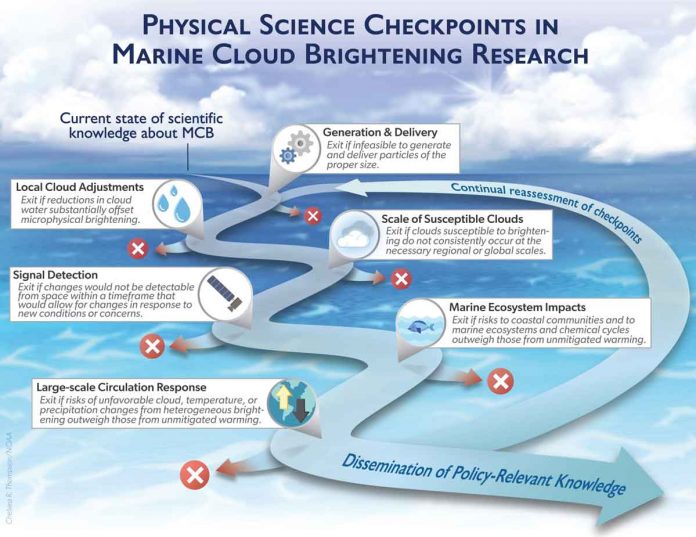Scientists have done research into engineering techniques. These techniques can be applied to artificially cool the planet. It has poses some of the thorniest questions facing society today. Scientists said, this tension is formed by the lack of a broadly accepted oversight framework to guide their research.
This study has been published in PNAS. NOAA and CIRES researchers outlined a framework for assessing the viability of a method for reflecting sunlight named marine cloud brightening or MCB. This method will use ocean sea-salt particles to increase the reflectivity of low-lying clouds over certain ocean regions. It is method considered as a temporary measure to limit rampant warming.
Scientists said, the steps can be taken to avoid the worst impacts of climate change includes decarbonize the economy and preserve natural ecosystems that absorb carbon.
But the current methods to reduce global greenhouse gas emission are insufficient to limit warming to 1.5 degrees. Global climate impacts grow in severity, this is why the interest in climate intervention research is expected to increase. Engineering and Medicine recommended conducting research in climate intervention methods. This kind of research operates under “robust research governance”.
Researchers from NCAR, NASA’s Jet Propulsion Laboratory, Brookhaven National Laboratory, Scripps Institution of Oceanography and University of Washington have done the research. They laid out ideas for such a framework. Scientists proposed a list of six “checkpoints” which can be continuously assessed during research into marine cloud brightening.
If the research demonstrates that a single aspect of MCB would be technically infeasible or socially unacceptable. The project would be shunted onto an “exit ramp” leading to redirection or termination of the work.
Scientists identified physical science checkpoints. Scientists need to develop sufficient confidence that appropriately-sized particles can be generated and delivered to the right altitude. Once they are there, they act to form cloud droplets that scatter sunlight efficiently. They need to show that MCB activities would not trigger cloud responses.
Scientists need to establish that marine clouds which can be brightened occur frequently enough to reduce the global impact of climate change. It shows that the cooling effect of MCB would be measurable in order to demonstrate that the method is working as intended.
MCB research need to clarify the risks of negative impacts on coastal communities and ecosystems. Large-scale disruption of atmospheric circulations with unintended consequences. This includes affecting precipitation patterns in vulnerable regions like the Amazon.

